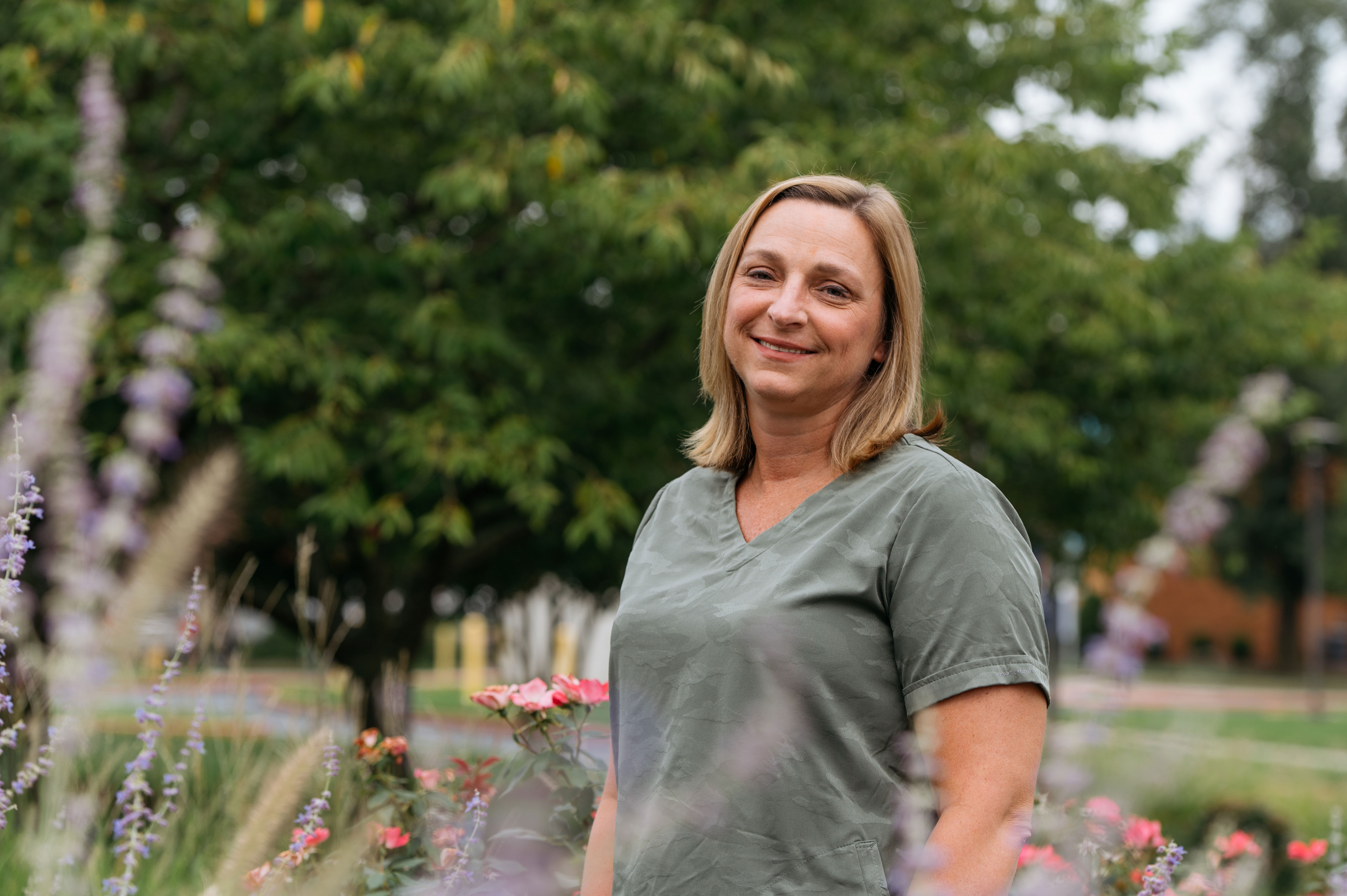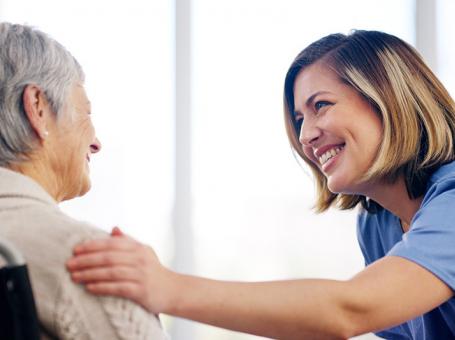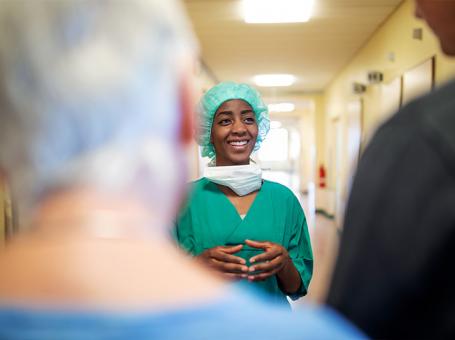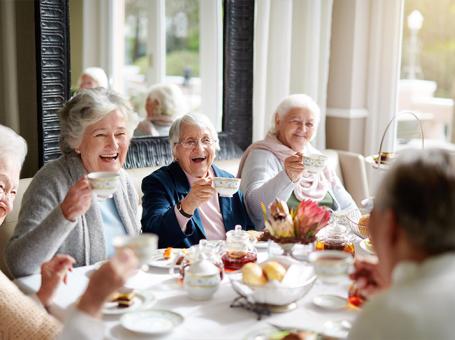
You aren't alone — Samantha's Story
Cancer can seem like a long journey, but sometimes it feels like it’s in fast-forward. As someone who has worked in the field, including at the TidalHealth Breast Center, Samantha Fouts, ultrasound/vascular lab supervisor, knew speed was important, so she took it in stride.
“My lump was found on Monday; on Tuesday, I had an ultrasound, and on Friday, my results came back. I had an MRI that afternoon that showed no lymph node involvement.”
"This isn’t a death sentence, it’s just a bump in the road."
But after her double mastectomy three weeks later, she was taken aback to learn the cancer had in fact spread to her lymph nodes.
“That threw me into chemo,” she said. “But I never cried. I’m in the field, and I see people survive it all the time.” She told herself: “This isn’t a death sentence, it’s just a bump in the road.”
Her best friend had gone through it as well, so Fouts had someone to lean on. She quickly realized and embraced the importance of a supportive community.
“Once you realize you’re in this group, you find people,” she said. But there was a catch – Fouts was diagnosed in the midst of COVID-19.
“It was very lonely sometimes,” she said. “COVID made it hard. But the pros were that I could focus on myself.”
She used videoconferencing so her family and friends could be with her virtually. And she found a robust community of women who give each other support through a group chat.
“There are 37 of us, and some of us are out to help people.” Her colleagues who work in breast cancer care have been known to give out her phone number to talk to a new patient who is feeling anxiety or needs to talk. She is happy to give back.
“So many people helped me,” she said. “It’s really important for people going through this to know at least one person who has been in your shoes, who can fully understand. You can talk about what’s normal and what isn’t and some of the aspects that other people might not understand. Losing your hair – it’s going to grow back, it’s just hair, but it is emotional. So, it’s good to have someone to talk to.”
Fouts said she appreciated the infusion nurses at TidalHealth Peninsula Regional.
“It opened my eyes to the fact that you have to live your life."
“They are phenomenal – I still go down and catch up with them sometimes.”
She still takes a once-a-month shot as part of her cancer follow-up care that they administer, and she enjoys their company each time.
Fouts has some advice and reminders for others facing a similar cancer fight.
“Stay off the internet! There’s so much information on there that’s going to lead you to every worst-case scenario, and that’s not helpful. Don’t be afraid to ask questions – there’s never a dumb question. Don’t be afraid to get a second opinion if you don’t feel 100 percent comfortable. Make sure you have doctors you can trust and connect with, who really listen. And find a local support group and buddy up with someone.”
Support is important, she said. Throughout her chemotherapy, Fouts’ family, friends and coworkers cheered her up periodically with homemade brownies, fresh-cut flowers from their garden and other personal kindnesses that meant a lot.
“It can feel like a full-time job to go through treatment,” she said. “My calendar was my bible – I still have it. I had so many different doctors and appointments.”
But Fouts found ways to make it all meaningful.
“It opened my eyes to the fact that you have to live your life. There’s more to life than work and laundry.”
Become part of TidalHealth's Drive for Mobile Mammography. TidalHealth will be raising funds to bring a mobile mammography unit to Delmarva. This unit will drive to underserved areas to offer breast cancer screenings to our friends, families, and neighbors who may not have access to healthcare. Learn how you can donate and help us save lives.



